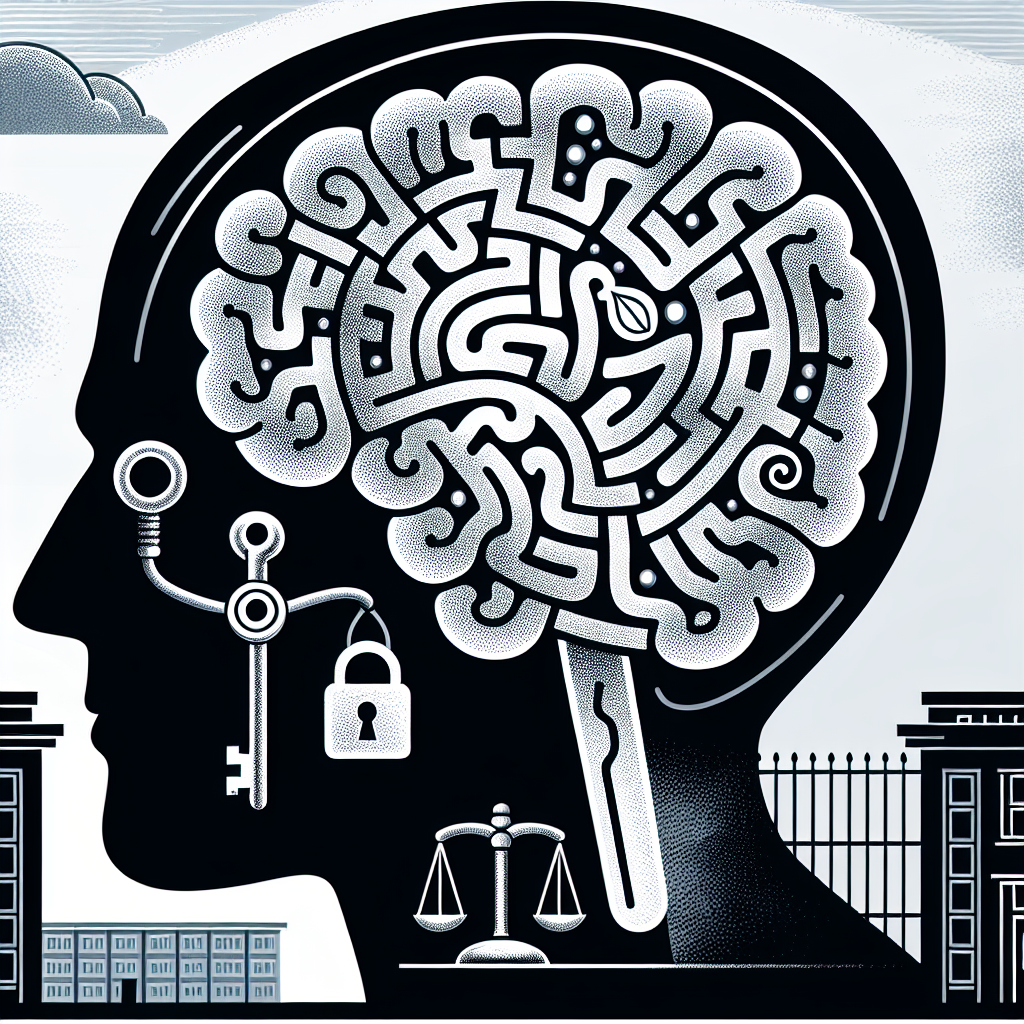
Introduction
In the labyrinthine world of corrections, the path to rehabilitation often feels daunting. Yet, behind the walls of prisons and correctional facilities lies a team of unsung heroes: correctional psychologists. These specialists delve deep into the minds of inmates, wielding the power of understanding and empathy to foster change. The role of correctional psychologists is not merely about punishment but about reshaping lives and steering individuals back into society as productive members. In this article, we examine the transformative impact of correctional psychologists and how they contribute to rehabilitation, illuminating the importance of their work in modern correctional systems.
The Role of Correctional Psychologists
Understanding the Impact of Psychology in Corrections
Correctional psychologists play a vital role in understanding the complexities of criminal behavior. Their expertise is essential in evaluating mental health conditions, substance abuse issues, and underlying trauma that may contribute to criminal behavior. By focusing on the psychological factors at play, they can tailor rehabilitation programs that address both the mind and behavior, promoting effective reintegration into society.
Assessment and Evaluation
Tools and Techniques
One of the primary responsibilities of correctional psychologists is conducting psychological assessments. These evaluations may incorporate various tools, such as:
- Structured Interviews: To gather detailed personal histories.
- Psychological Tests: Standardized assessments to gauge mental health.
- Behavioral Observations: Observing inmates in different settings to evaluate interpersonal skills and coping mechanisms.
Case Study: The Evolving Assessment
In 2020, the Ohio Department of Rehabilitation and Correction implemented a new assessment tool that integrates the latest psychological research. This tool not only evaluates mental health but also factors in social history, allowing for a more holistic understanding of the inmate’s background. As a result, the recidivism rates dropped by 15% in the following year—demonstrating the importance of thorough assessments in successful rehabilitation.
Individualized Treatment Plans
Personalization is Key
Once assessments are completed, correctional psychologists develop individualized treatment plans that incorporate therapeutic techniques tailored to each inmate’s unique profile. These may include:
- Cognitive Behavioral Therapy (CBT) to combat harmful thought patterns.
- Dialectical Behavior Therapy (DBT) for emotional regulation.
- Trauma-informed care to address past traumas that may influence current behavior.
Case Study: CBT in Action
Consider the implementation of CBT in a California correctional facility. Inmates participating in CBT reported a 40% reduction in violent behavior after just six months. Such statistics underscore the significance of personalized approaches in the rehabilitation process.
The Dynamics of Group Therapy
Building Community and Trust
Group therapy sessions, facilitated by correctional psychologists, create an environment where inmates can share their experiences and support each other. This sense of community fosters trust and encourages open discussion, essential for effective emotional healing.
Structure of Group Sessions
These sessions might include:
- Icebreakers to promote rapport.
- Coping skill workshops that teach practical strategies to handle stress and anger.
- Feedback loops where inmates can provide constructive criticism to each other, promoting accountability.
Case Study: The Power of Group Support
A notable initiative in New York’s correctional facilities involved a year-long group therapy program focused on anger management. Participants reported better conflict resolution skills and a notable decrease in altercations within the facility—from 25 incidents per month to just 5. This exemplifies how group therapy can lead to tangible improvements in behavior.
The Importance of Family Involvement
Engaging Outside Support Systems
The involvement of family members in the rehabilitation process has been identified as a crucial factor in successful outcomes. Correctional psychologists often facilitate family therapy sessions, enabling better communication and understanding between inmates and their loved ones.
Benefits of Family Therapy
Family involvement can:
- Reduce feelings of isolation among inmates.
- Provide a supportive framework for behavior changes.
- Enhance the motivation to succeed upon release.
Case Study: Family-Centered Approaches
A pilot program in Arizona engaged families in the rehabilitation process, focusing on communication skills. The result? A reported 35% decrease in recidivism among participants. This highlights the profound influence family dynamics play in rehabilitation efforts.
Addressing Co-occurring Disorders
The Dual Diagnosis Challenge
Many incarcerated individuals struggle with both mental health disorders and substance abuse issues. Correctional psychologists are trained to assess and treat these co-occurring disorders effectively.
Integrated Treatment Approaches
Programs that simultaneously address mental health and substance use typically lead to better outcomes. Techniques in these programs may include:
- Motivational Interviewing to inspire change.
- Medication-Assisted Treatment (MAT) for substance use disorders.
- Holistic therapies, such as mindfulness and yoga, to address overall well-being.
Case Study: Integrated Programs in Action
A program in Texas combined mental health treatment with substance abuse recovery and reported an impressive 50% success rate in sustained sobriety after release. This integrative approach underscores the positive impact of addressing dual diagnoses in correctional settings.
Data-Driven Decision Making
Utilizing Research for Better Outcomes
The landscape of correctional rehabilitation is continually evolving, driven by research in psychology and criminology. Correctional psychologists rely on data to inform their practices, ensuring they employ evidence-based methods.
Key Metrics for Evaluation
Metrics that correctional psychologists might track include:
- Recidivism Rates: Monitoring re-offense statistics.
- Mental Health Assessments: Evaluating the psychological progress of inmates.
- Program Participation Rates: Measuring engagement levels in rehabilitation programs.
Case Study: Data-Driven Initiatives
In Illinois, a correctional facility implemented a new data tracking system that identified key areas needing improvement in rehabilitation programs. Following this initiative, recidivism rates decreased by 20% over two years, emphasizing the power of informed decision-making in corrections.
The Future of Correctional Psychology
Innovations on the Horizon
The future of correctional psychology promises exciting developments, such as the integration of technology in rehabilitation. Virtual reality therapy, for example, could offer immersive experiences for therapeutic interventions, allowing inmates to confront fears and practice coping skills in controlled environments.
An Evolving Landscape
As societal perceptions of rehabilitation evolve, the role of correctional psychologists will become increasingly vital. Their insights into behavior, prevention, and recovery processes will play a crucial part in shaping more humane and effective correctional systems.
Conclusion
Inside the minds of correctional psychologists, there lies a reservoir of potential that has the power to reshape lives. By understanding individual complexities, fostering genuine therapeutic relationships, and employing innovative strategies, these professionals craft pathways to rehabilitation that enhance public safety and human dignity. As we look to the future, it is imperative to recognize and support the essential contributions of correctional psychologists in creating a brighter, more hopeful society for all.
FAQs
1. What qualifications do correctional psychologists need?
Correctional psychologists typically hold a doctorate in psychology, with specialized training in criminal behavior, mental health evaluation, and therapeutic techniques.
2. How do correctional psychologists measure success?
Success can be measured through recidivism rates, improvement in mental health assessments, and qualitative feedback from inmates regarding their experiences in therapy.
3. Are rehabilitation programs in prisons effective?
Yes, numerous studies show that evidence-based rehabilitation programs, particularly those guided by correctional psychologists, significantly reduce recidivism rates and promote successful reintegration into society.
4. What types of therapy do correctional psychologists use?
Common therapies include Cognitive Behavioral Therapy (CBT), Dialectical Behavior Therapy (DBT), group therapy, and trauma-informed care, tailored to meet the needs of individual inmates.
5. How can family members support inmates during rehabilitation?
Family members can support inmates by participating in therapy sessions, maintaining open lines of communication, and engaging in healthy relationships that promote accountability and emotional well-being.
By delving into the minds of correctional psychologists, we can appreciate the nuanced, impactful work that shapes the future of rehabilitation, creating new beginnings for individuals caught in the web of the criminal justice system.















